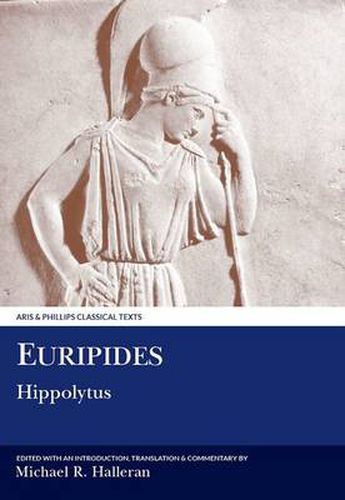Readings Newsletter
Become a Readings Member to make your shopping experience even easier.
Sign in or sign up for free!
You’re not far away from qualifying for FREE standard shipping within Australia
You’ve qualified for FREE standard shipping within Australia
The cart is loading…






Euripides works with a common story pattern a young man (Hippolytus) becomes the object of a married woman’s (Phaedra’s) desire, rebuffs her sexual overtures, and is then falsely accused to the woman’s husband (Theseus, Hippolytus’ father) of rape. To this familiar tale Euripides adds the story of divine vengeance Aphrodite has brought about this passion in Phaedra in order to punish Hippolytus for contemning her neglecting her realm of sex and marriage. In working through these plots the play explores the themes of passion and moderation, speech and silence, honour and shame, and examines the relationship between gods and mortals. This play holds a particular place in Euripidean studies, not only because of its acknowledged excellence and influence, but also because it allows the unique opportunity to observe the playwright’s ‘rewriting’ of his earlier play on the same mythological topic, remarkably replacing the brazen Phaedra of earlier legend and previous treatments with a virtuous woman.
$9.00 standard shipping within Australia
FREE standard shipping within Australia for orders over $100.00
Express & International shipping calculated at checkout
Euripides works with a common story pattern a young man (Hippolytus) becomes the object of a married woman’s (Phaedra’s) desire, rebuffs her sexual overtures, and is then falsely accused to the woman’s husband (Theseus, Hippolytus’ father) of rape. To this familiar tale Euripides adds the story of divine vengeance Aphrodite has brought about this passion in Phaedra in order to punish Hippolytus for contemning her neglecting her realm of sex and marriage. In working through these plots the play explores the themes of passion and moderation, speech and silence, honour and shame, and examines the relationship between gods and mortals. This play holds a particular place in Euripidean studies, not only because of its acknowledged excellence and influence, but also because it allows the unique opportunity to observe the playwright’s ‘rewriting’ of his earlier play on the same mythological topic, remarkably replacing the brazen Phaedra of earlier legend and previous treatments with a virtuous woman.